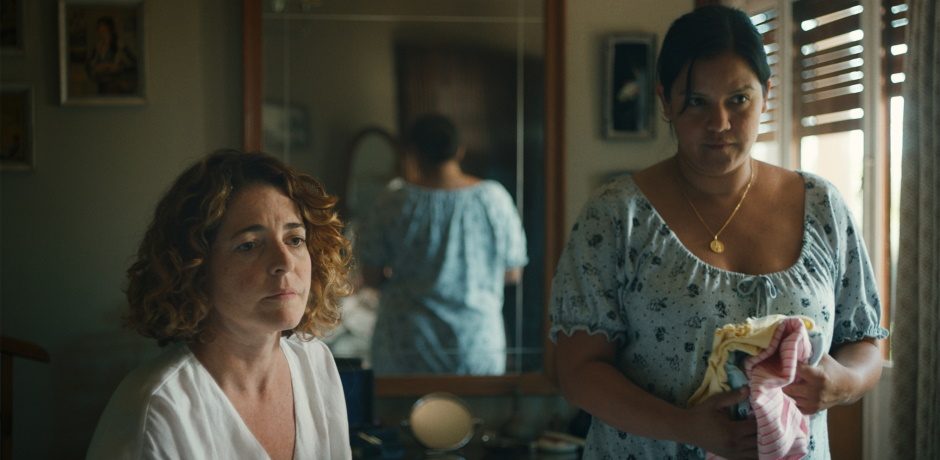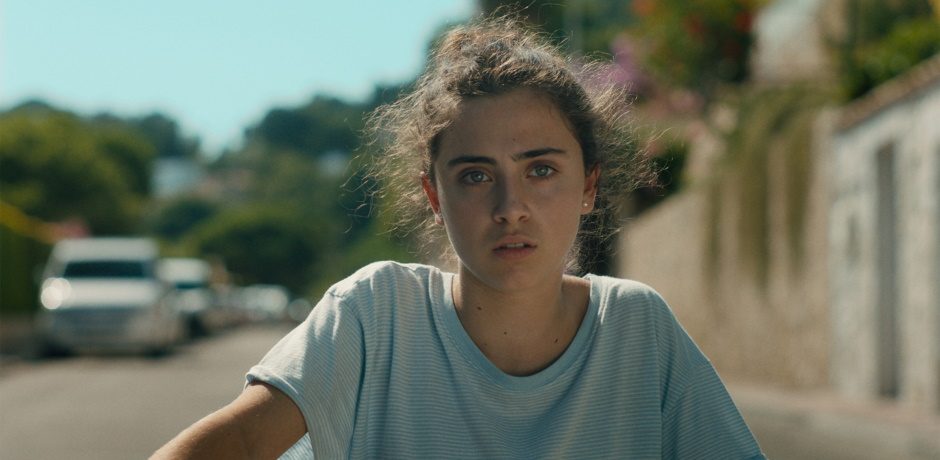In this debut from Catalan director Clara Roquet, we spend one summer with wealthy teenager Nora (Maria Morera) and her family at their holiday home on the Spanish Coast. Here she meets the aptly named Libertad (Nicolle Garcia) for the first time, and things will never be the same again.
The film primarily explores the complexities of female relationships in a subtle but truly insightful way. Probably most prominent theme is the relationships between mothers and daughters which is layered with class dynamics throughout.
Libertad has come to live with her estranged mother Rosana (Carol Hurtado), Nora’s family’s maid after her grandmother dies. This relationship is particularly interesting and perhaps the starkest example of class divide within the film, as the teenager is witness to her mother’s subservient role within the household. Whilst Rosana is constantly referred to as ‘family’ it is clear she is not.
Nora is on the brink of becoming a woman and has led a privileged and protected life so far. Libertad on the other hand, is street smart and tough, having been brought up in Columbia by her grandmother for the past 10 years. When the two meet it opens Nora’s eyes to a whole new world.
The two strike up a strong friendship but this soon becomes marred by jealousy, family pressures and ultimately the class divide between them. Both Garcia and Morera are brilliant as two young women whose friendship is striated by social divisions.
Nora’s mother, Teresa (Nora Navas) also offers an excellent performance as she tries to hold things together in the family, with her mother, once a formidable woman and the hostess of legendary parties butsuffering from advancing dementia, an absent husband, and her daughter under the influence of Libertad. Feeling abandoned by her husband and usurped in her mother’s affections by the maid, she struggles to keep focused on her daughter.
Vicky Peis heart-breaking as the ailing the grandmother, Ángela, who is suffering from Alzheimer’s. As the house starts to show signs of decay, this reflects the decline of this once great household and its matriarch, and the shift from childhood to the realisations of adulthood.
It is refreshing to see a film by a female director and with a cast of strong female characters, where in fact, the men in this feature are rarely heard from at all.
By Davinia Jokhi, Talent Development Producer: Theatre


